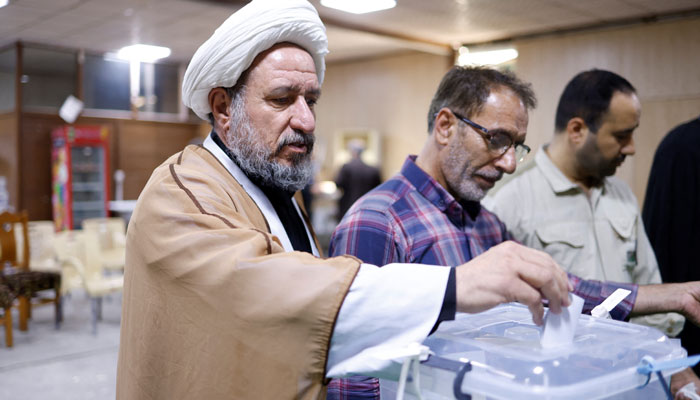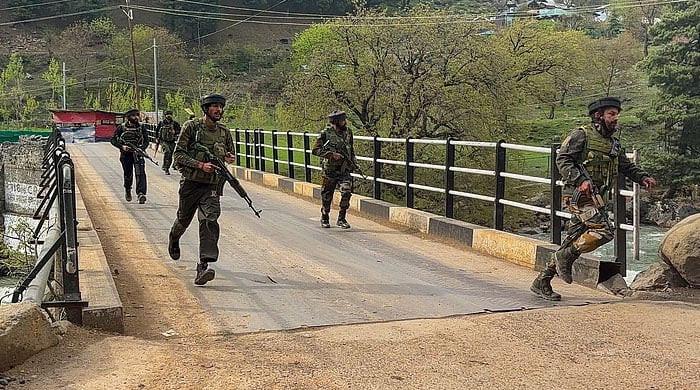Iranians head to polls as voting begins in runoff presidential election
Polling will end at 6pm local time but it's usually extended until midnight with results to be announced Saturday
July 05, 2024

- Iranians vote to choose successor to Ebrahim Raisi.
- Election may shape succession of Ayatollah Ali Khamenei.
- Voter turnout has plunged over past four years, critics say.
Iran’s runoff presidential election started on Friday to gauge the popularity of the clerical rulers in the face of voter apathy and ongoing rehgional tensions, as well as the standoff with the West over Tehran’s nuclear programme.
The polling stations opened at 8am local time and will close at 6pm, but could be extended until as late as midnight, Reuters reported citing Iranian TV.
The final results will be announced on Saturday, but preliminary figures may be released earlier.
The runoff follows a historic low turnout on June 28, when over 60% of Iranian voters abstained from the snap election to choose a successor to Ebrahim Raisi, following his death in a helicopter crash.
The low participation is seen by critics as a vote of no confidence in the administration.
The vote is a tight race between low-key lawmaker Masoud Pezeshkian, the sole moderate in the original field of four candidates, and hardline former nuclear negotiator Saeed Jalili.
While the poll will have little impact on Iran's policies, the president will be closely involved in selecting the successor to Ayatollah Ali Khamenei, Iran's 85-year-old supreme leader who calls all the shots on top state matters.
"I have heard that people's zeal and interest is higher than in the first round. May God make it this way as this will be gratifying news," Khamenei told Iranian media after casting his vote.
Khamenei acknowledged on Wednesday "a lower than expected turnout" in earlier voting, but said "it is wrong to assume those who abstained in the first round are opposed to the Islamic rule".
Voter turnout has plunged over the past four years, which critics say shows support for the system has eroded amid growing public discontent over economic hardship and curbs on political and social freedoms.
Only 48% of voters participated in the 2021 election that brought Raisi to power, and turnout was 41% in a parliamentary election in March.
The election coincides with escalating regional tension due to the war between Israel and Iranian allies Hamas in Gaza and Hezbollah in Lebanon, as well as increased Western pressure on Iran over its fast-advancing nuclear programme.
"Voting gives power ...even if there are criticisms, people should vote as each vote is like a missile launch (against enemies)," Iran's Revolutionary Guards Aerospace Commander Amirali Hajizadeh told Iranian media.
The next president is not expected to produce any major policy shift on Iran's nuclear programme or change in support for militia groups across the Middle East, but he runs the government day-to-day and can influence the tone of Iran's foreign and domestic policy.











